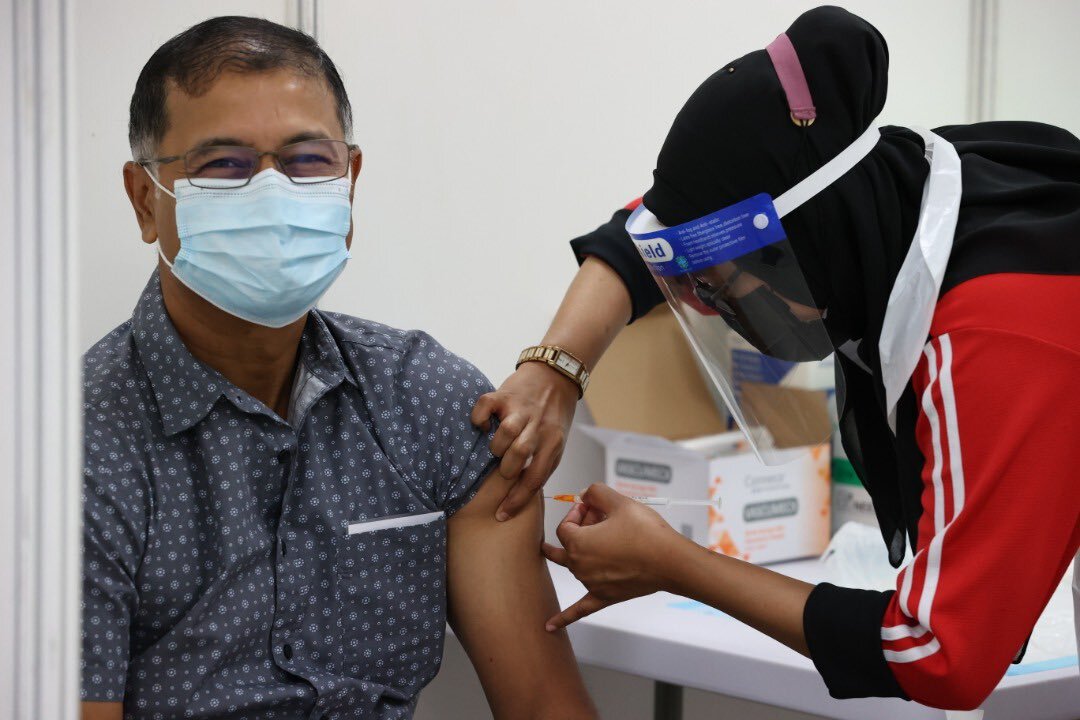KUALA LUMPUR, May 11 — Side effects from Pfizer-BioNTech’s Covid-19 vaccine are more common after the second dose and resolve after a few days, infectious disease expert Dr Low Lee Lee said.
Dr Low, during a webinar by the Institute for Clinical Research Malaysia on April 21, explained that people who receive mRNA vaccines, such as the Pfizer vaccine, commonly develop side effects after the second dose rather than after the first dose.
“I just want to highlight here that the common side effect, which is injection site pain, and also swelling, fatigue or headache, is more common after the second dose rather than the first dose,” Dr Low said.
The infectious disease expert also said that the side effects usually peak on day one following the day of vaccination (day zero), which then subsequently resolves in seven days.
Dr Low highlighted that the side effects were also more commonly seen among people who are less than 55 years of age.
Based on real-world studies of the Pfizer-BioNTech vaccine, the vaccine showed an efficacy rate of 92 to 94 per cent at preventing symptomatic Covid-19 and 100 per cent at preventing severe Covid-19.
Meanwhile, the side effects of Sinovac’s Covid-19 vaccine, CoronaVac, is more commonly seen after the first dose.
“In CoronaVac, the systemic reaction is more common after the first dose unlike mRNA vaccines,” Dr Low added.
The medical practitioner shared results of a real-world study of the Sinovac vaccine in Chile, which showed that the Sinovac vaccine was 67 per cent effective in preventing symptomatic Covid-19 disease, 85 per cent effective in preventing hospital admission, 89 per cent effective in preventing intensive care unit admission, and 80 per cent effective in preventing deaths.
Malaysia’s National Pharmaceutical Regulatory Agency (NPRA) has given conditional approval for the Pfizer and Sinovac coronavirus vaccines. The government has procured enough Pfizer vaccines for 50 per cent of the population and the Sinovac vaccine for 18.75 per cent of the population.
For AstraZeneca-Oxford’s Covid-19 vaccine, Dr Low said the side effects were also seen commonly after the first dose and were less common among the elderly and those above the age of 65.
However, despite cases of blood clots reported following vaccination with the AstraZeneca jab, Dr Low stressed that the European Medical Agency (EMA) has concluded that the benefits of taking the vaccine still outweigh the risk.
“The clotting event could be associated with the vaccine and should be listed as a very rare side effect, not common. Ten times more common to have a blood clot if you were to have Covid-19,” Dr Low said.
Following the international reports of blood clots, Malaysia opened AstraZeneca vaccination in an opt-in voluntary stream separate from the mainstream National Covid-19 Immunisation Programme (PICK). All 268,600 doses initially offered in Kuala Lumpur and Selangor were booked in a few hours.
Dr Low also said that HIV-positive patients who are under treatment can take a Covid-19 vaccine, but for patients with low CD4 counts, they should be informed that efficacy rates of coronavirus vaccines in low CD4 count patients is not known.
“With regards to HIV on treatment, there’s no drug-to-drug interactions per se between the vaccine and the antiretroviral therapy (ART).”








